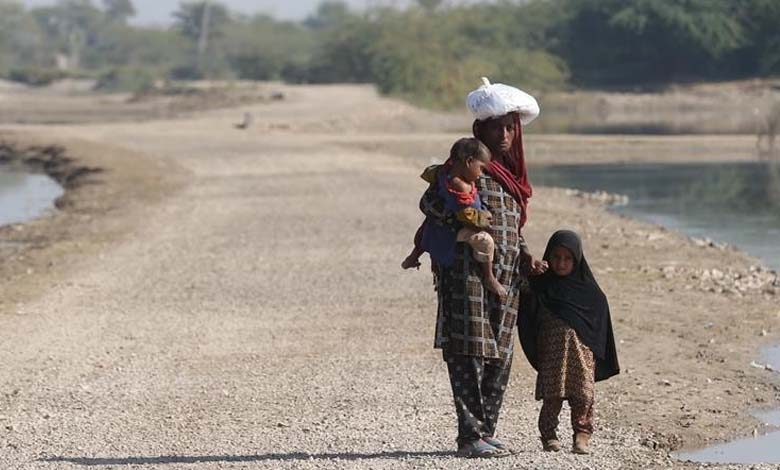Negative Impact of Climate Change on Poor Women and Housewives

Climate change significantly affects housewives and the poor in rural areas of developing countries, according to a new report by the United Nations Food and Agriculture Organization (FAO).
According to “Agence France-Presse”, a one-degree increase in average temperature over the long term leads to a 34% greater decrease in income for households headed by women compared to those headed by men, according to FAO.
The United Nations organization pointed out that heavy rains in these areas widen the income gap between households headed by women and those headed by men by about $16 billion annually due to heatwaves.
FAO observed that the weak status of women in rural areas “is rooted in social structures, customs, and discriminatory institutions that determine access to resources, time use, income opportunities, and access to services based on gender”.
Why Women and the Poor?
Women who spend long hours at home earn less income, hindering their access to information, financing, technology, and other basic services.
The report suggests that, due to their roles at home, they are less likely to migrate in search of other sources of income in the event of a climate disaster, citing numerous factors that contribute to limiting their ability to adapt.
Due to the scarcity of resources and economic opportunities, poor families struggle to adapt, forcing them to sell their livestock when needed instead of keeping them, according to the organization.
Also, those with lower education levels have difficulty accessing non-agricultural jobs or obtaining loans to invest in future projects that could help them generate income in the event of a climate disaster.
The study indicates that they lose an average of five percent of their income currently due to heatwaves and 4.4 percent more due to floods.
The organization concluded in its report that “if the uneven impact of climate change on rural populations, the large gap between the affluent and the deprived, and between women and men are not addressed, they will worsen”.
To study the impact of climate change on women, the poor, and youth, the organization used data from about 109 households in 24 low and middle-income countries, in addition to data collected over 70 years on rainfall and temperatures.












